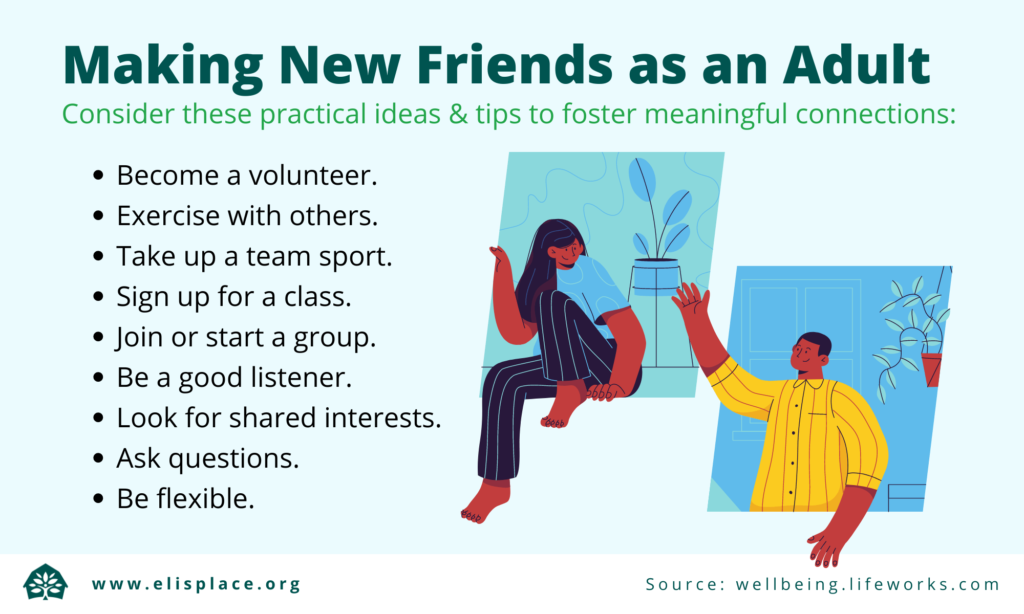Friendship and mental health are deeply intertwined, forming a powerful connection that impacts our overall health and well-being. Good friendships have the potential to uplift our spirits, offer support during difficult times, and provide a sense of belonging and understanding. On the other hand, toxic friendships can have detrimental effects on our mental health by draining our energy and causing emotional distress.
Understanding the profound influence of friendship on our mental well-being is crucial, as it allows us to foster positive connections, prioritize our mental health, and create a support network that contributes to our overall happiness and resilience. Studies show that friendships can even change the way we respond to stress.

The Importance of Life-Long Friendship
Life-long friendships play a significant role in boosting mental well-being and supporting good mental health. These connections provide a sense of belonging, acceptance, and understanding. Strong bonds can help keep us emotionally balanced and assist in overcoming obstacles. According to the Mental Health Foundation, “friendship is a crucial element in protecting our mental health. Our friends can keep us grounded, help us get things in perspective, and help us manage life’s problems.”
Building Close Connections
Investing time and effort is essential in building and maintaining close friendships. Tips on creating and sustaining these bonds include active listening, showing empathy, being reliable, and fostering trust. Additionally, maintaining regular communication, engaging in shared activities, and being present during difficult times, can contribute to the growth of meaningful connections.

Is it Too Late to Make New Friends?
Making friends as an adult can be challenging, but it is entirely possible. The process often involves stepping out of your comfort zone and being open to new experiences. Three important conditions for making friends as an adult include seeking out opportunities for social interaction, nurturing existing connections, and taking part in activities that align with your interests.

Read a full list of ideas here.

Ending a Friendship (“Friendship Breakups”)
Sometimes, friendships can have a negative impact on our mental health. It is essential to recognize when a friendship is unhealthy and when it is time to let go. Signs that indicate a friendship breakup may be necessary include a consistent lack of support, emotional manipulation, constant negativity, ghosting or disrespectful behaviour. Prioritizing your mental well-being is crucial, even if it means ending a long-standing friendship.
When breaking up with a friend, it’s important to approach the situation with kindness and respect. In an article for CBC, Psychotherapist Malcolm Welland suggests prioritizing face-to-face communication, using “I,” and keeping it neutral. For further reading on this complex and challenging topic, this article – “How to Break Up with a Friend” – outlines thoughts on walking away from a friendship while preserving your mental health and well-being.
These considerations include:
Identifying the problem
- Can a friend’s offence be clearly identified or communicated?
Reflecting on shared responsibilities
- What was my role in the breakdown of the friendship? Friendship is a dynamic relationship that exists between two individuals, and when facing a breakdown, it is crucial to reflect upon our own role in the situation, even if the friend in the partnership may bear some responsibility.
Proceeding with integrity
- While it’s important to set boundaries and limit certain interactions — such as refraining from going out drinking with a friend who struggles with alcohol — it’s equally crucial to avoid silently fading away from the friendship without offering any explanation. Ghosting someone without communication can lead to confusion, anger, hurt, and further strain on the relationship.
- Instead, strive for open and honest communication, expressing your concerns or reasons for distancing yourself in a compassionate manner. This approach respects both your own needs and the dignity of the friendship, fostering understanding and potentially paving the way for growth and healing, even if the nature of the relationship changes.

Talking to Friends About Your Mental Health
Openly discussing mental health with friends can be a valuable source of support. Sharing your struggles, fears, or concerns with trusted friends can alleviate feelings of isolation and provide emotional relief. Friends who are informed about your mental health can better understand your situation and support you during difficult times.
How do we communicate effectively with friends regarding mental health? Active listening, validating feelings, and encouraging professional help when necessary are strong foundations. Remember, communication is a two-way street; it’s important to not only share your own experiences but also to be attentive and supportive when your friend opens up about their mental health. Building a strong foundation of trust, empathy, and understanding will help foster a healthier and stronger friendship.

Why Loneliness Can Be Deadly
Loneliness and social isolation can have severe consequences for our mental and physical health. Studies have linked loneliness to increased risks of heart disease, depression, dementia, and overall mortality. Loneliness affects not only our mental well-being but also our cognitive and physical health. Researchers have found that lonely individuals face a 26% higher chance of premature death. Building and maintaining close friendships is key to combating loneliness and improving overall health.

The Science of Friendship and Mental Health
In a world where technology causes some of our interactions to evolve, the power of friendship in safeguarding our mental health becomes more critical than ever. Amidst the vast possibilities for connection, meaningful interactions and genuine friendships have a unique ability to release oxytocin. Often referred to as the “love hormone,” oxytocin not only strengthens the bonds between friends but also plays a pivotal role in reducing stress and promoting overall well-being. New research in neuroscience explores the benefits of strong friendships and the long-term impacts of such relationships.

The Bottom Line
With this we can see that the impact of friendship can reach far into our future, influencing not only our present mental well-being but also shaping our long-term cognitive health. At Eli’s Place, the opportunities for belonging to a safe and consistent therapeutic community will enable the conditions for clients to foster friendships both in the short term and potentially over the longer term.
We need to cherish and nurture our friendships, for they are not only sources of joy and support today, but also investments in our mental resilience for years to come.
Eli’s Place will be a rural, residential treatment program for young adults with serious mental illness. To learn more about our mission and our proven-effective model click here.




